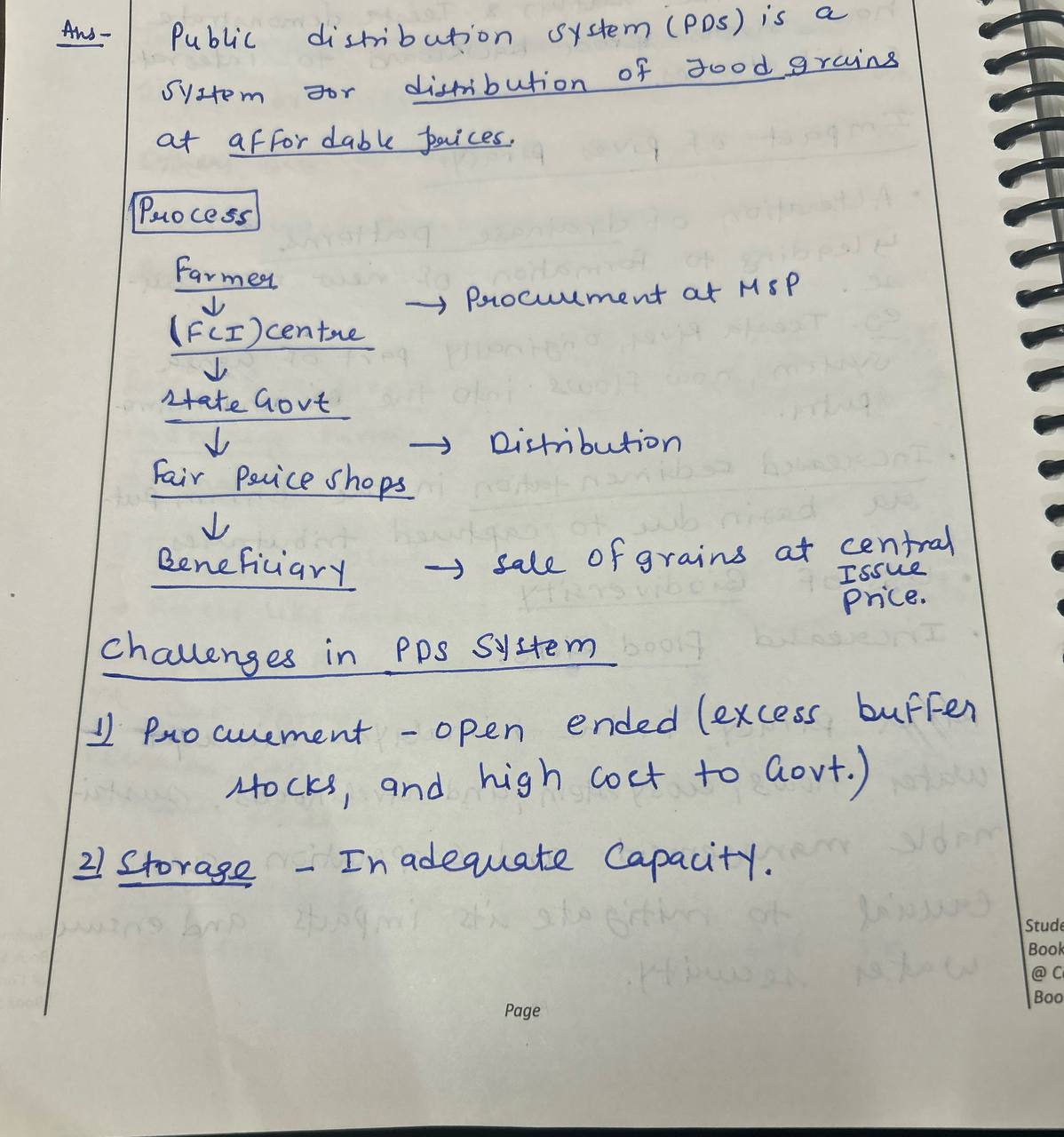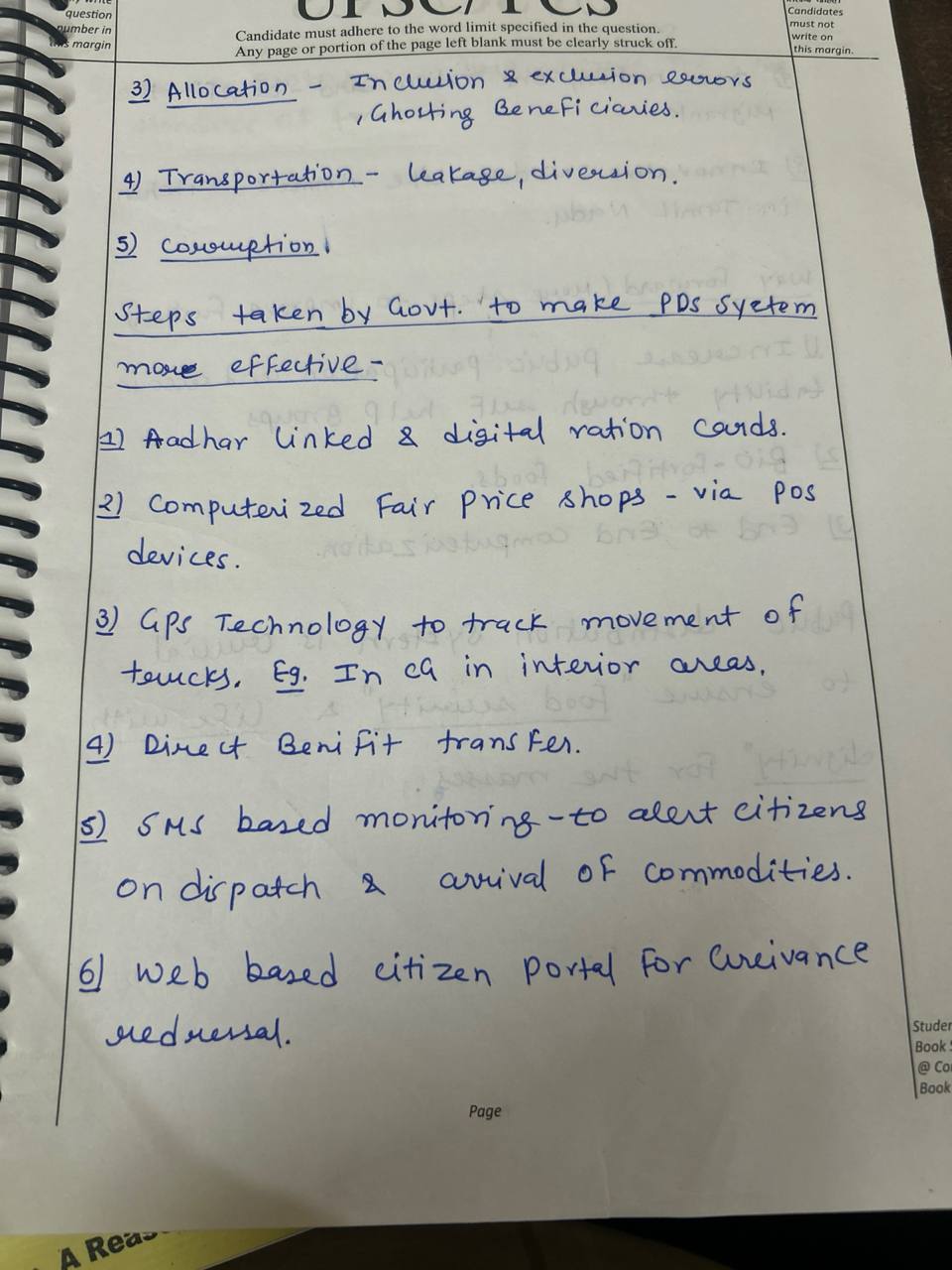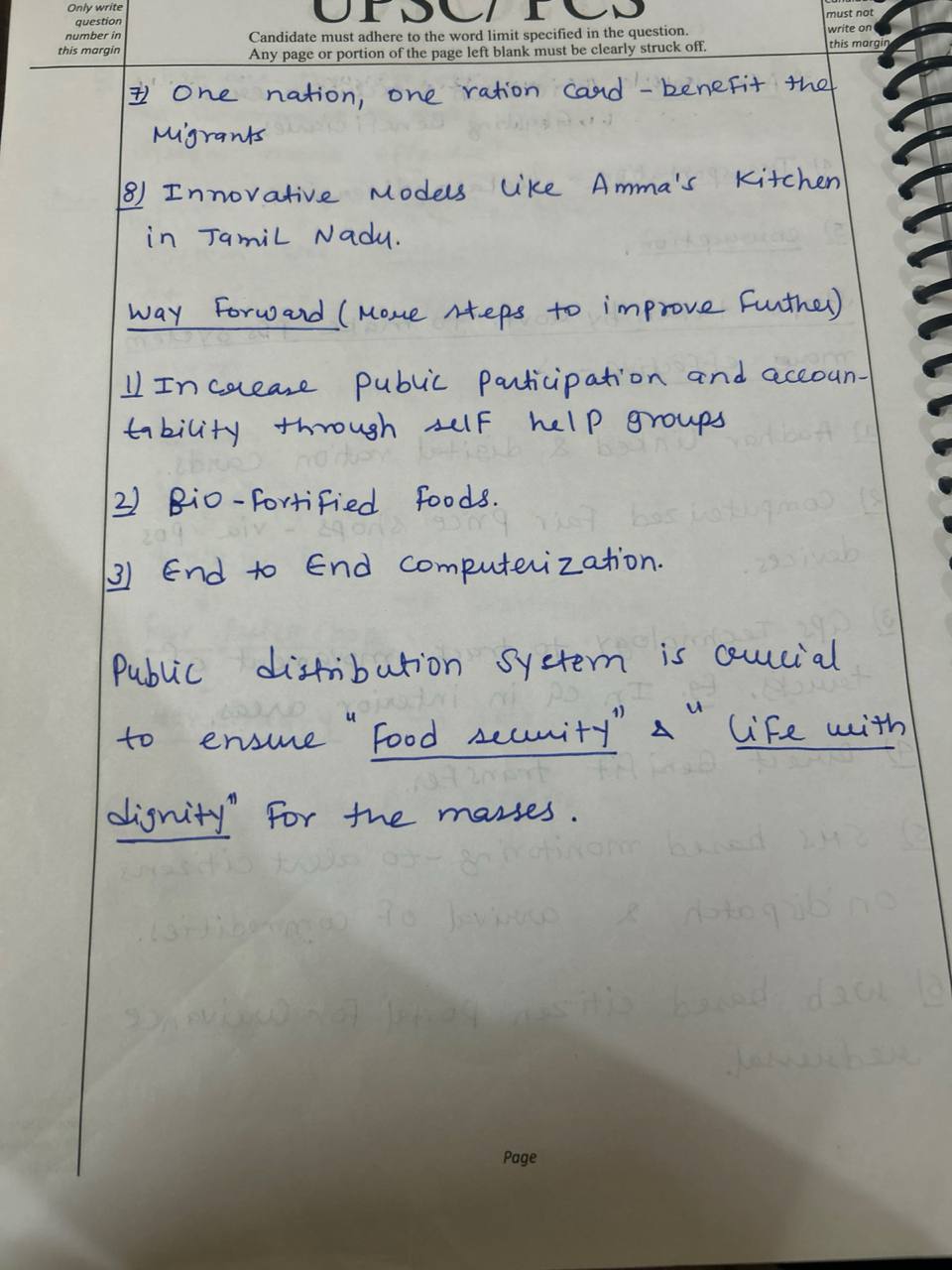Examine how high-value, water-intensive crops like fruits and vegetables are replacing less sustainable irrigation techniques and water-using resources generally. Also, talk about the policy changes that are necessary to encourage crop diversification and sustainable water management.
Modern Agricultural Practices Agriculture, in Due Course of Time is playing a vital role in Indian Economic System. 45 - 47% of people are involved directly in agriculture, i.e. they get their income primarily from Agriculture. So Modernization of Agricultural System is important in order to - 1. ImRead more
Modern Agricultural Practices
Agriculture, in Due Course of Time is playing a vital role in Indian Economic System. 45 – 47% of people are involved directly in agriculture, i.e. they get their income primarily from Agriculture. So Modernization of Agricultural System is important in order to –
1. Improve and Increase the Economic conditions of Farmers
2. Make this little easy to produce Crops
3. Improve Financial Conditions of Farmers
4. Make Indian Agriculture a boon for India
Modern Practices Include –
- Zero Tillage – No Need of Tillage in the Agricultural Field . Tillage is not done . So, if the Tillage procedures are not done so, cost of Tillage is prevented.
- Drip Irrigation – In drip irrigation, water is given to plants in drop by drop manner. The water is directly provided to the roots of the plants. So here also water can be saved by following drip water can be saved by following this method.
- Sprinkler Irrigation – In this method, water is given to the plants in the form of sprinkler. This method is also called artificial rain method of irrigating plants.
- Hydroponics System – In this system, no more use of water is there , the plants are grown in pipes with the soil in it and the water is given in little amounts to to just keep them alive. The plants take the exact time as they take in the soil to grow. Here also water is saved to an extent.
- Aeroponics – Plants are grown in the air by help of pipes, soil in it and water supply whenever needed .
- Sustainable Agriculture – Agriculture practices are done keeping in view that that it is to be saved for future generations also.
- Drones – Drones are used to examining the conditions of the crop in the field, provide them fertilizers, used to spray insecticides or pesticides on the crops from above. Even sometimes artificial irrigation can be done in very harsh conditions if less water is there for irrigation it can be preferred.
So , these are the widely used modern practices in agriculture.
See less








Impact of the Shift Towards High-Value, Water-Intensive Crops on Water Use Efficiency and Irrigation Sustainability The shift towards cultivating high-value, water-intensive crops like fruits and vegetables has significant implications for water use efficiency and the sustainability of irrigation syRead more
Impact of the Shift Towards High-Value, Water-Intensive Crops on Water Use Efficiency and Irrigation Sustainability
The shift towards cultivating high-value, water-intensive crops like fruits and vegetables has significant implications for water use efficiency and the sustainability of irrigation systems in India. While these crops can offer substantial economic benefits, they also pose challenges related to water resource management. Analyzing these impacts and discussing necessary policy interventions can help in achieving a balance between economic gains and sustainable water management.
1. Impact on Water Use Efficiency
a. Increased Water Demand: High-value crops such as fruits and vegetables generally require more water compared to traditional cereals:
b. Efficiency of Water Use: While these crops are water-intensive, they often benefit from modern irrigation techniques that can enhance water use efficiency:
2. Impact on Irrigation Systems and Sustainability
a. Pressure on Water Resources: The increased cultivation of water-intensive crops can strain existing irrigation systems and water resources:
b. Sustainability of Irrigation Infrastructure: The shift towards these crops can challenge the sustainability of traditional irrigation infrastructure:
3. Policy Interventions to Promote Crop Diversification and Sustainable Water Management
a. Promoting Crop Diversification: Encouraging a diverse range of crops can help reduce pressure on water resources:
b. Enhancing Water Efficiency: Investing in technologies and practices that enhance water use efficiency is critical:
c. Supporting Research and Development: Investing in research to develop water-efficient crop varieties and technologies:
d. Improving Water Resource Management: Implementing comprehensive water resource management practices to ensure sustainable use:
e. Policy and Regulatory Framework: Establishing policies and regulations that promote sustainable agricultural practices:
f. Farmer Education and Training: Providing education and training to farmers on sustainable practices and efficient water use:
Conclusion
The shift towards high-value, water-intensive crops presents both opportunities and challenges for water use efficiency and the sustainability of irrigation systems in India. While these crops can offer significant economic benefits, they also place additional demands on water resources and infrastructure. Addressing these challenges through crop diversification, enhanced water efficiency, research and development, and supportive policies is crucial for ensuring sustainable water management and agricultural productivity. By implementing targeted policy interventions and investing in sustainable practices, India can better balance economic growth with environmental sustainability.
See less